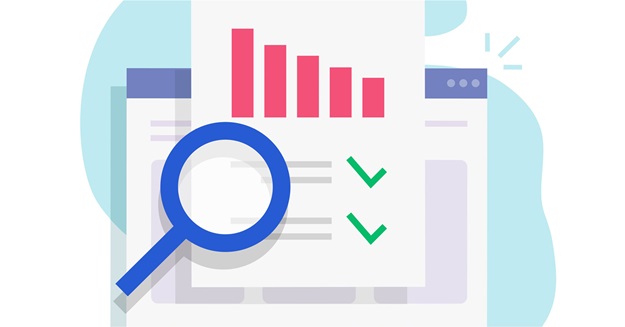The Agricultural Utilization Research Institute (AURI) is publishing a series of market spotlights that examine different food and agriculture opportunities for the state of Minnesota. AURI’s market research team compiled each report by speaking with stakeholders, producers, processors, and industry experts and analyzing published data. The reports describe the opportunities, demand, channel, price, and challenges in some familiar and more opaque areas of the state’s ag industry.
The project was funded through a grant from the United States Department of Agriculture (USDA) to support technical assistance and market development services for farmers. When the work is completed, there will be a total of 10 market snapshot reports covering goat meat, oats, wool, small dairy processing, specialty oilseed processing, Halal meat, turf seed, compost, artisan grains, and hemp opportunities. Sanchez Philocles, AURI’s market research analyst, is leading the research. AURI’s in-house staff conversed with technical experts and producers about areas of need and knowledge gaps to decide on the topical areas.
Philocles says about three-quarters of the data compiled was previously published by other sources. The remaining information was obtained through interviews with market experts.
“In many cases, the farmers and the entrepreneurs have a thorough knowledge of their product and process, but they do not have a clear understanding of the larger ecosystem,” he says. “AURI can provide assistance through specific market research and synthesized data that addresses the state of the industry and what entrepreneurs can expect. This information helps provide answers about where the individual business owner fits into the larger picture.”
To date, AURI has published three of the reports. Philocles says the reports have unearthed interesting findings and he anticipates notable information will continue to emerge as the work progresses.
Goat Market Spotlight
Due to its sizable Somali population, Minnesota is one of the larger marketplaces for goat meat, a staple of the Somali diet. There are about 76,000 regular consumers of goat meat in Minnesota, with an estimated market demand of $37 million per year. Minnesota farms only produce about 30,000 goats annually, which only serves 17% of the market. Imported frozen goat meat from Australia and New Zealand fills the supply gap. There is strong potential for Minnesota producers to expand production and processing to significantly enhance this home-grown industry. On the demand and processing side, AURI’s research identified a small group of businesses that do the majority of processing and facilitate the sale of goat meat.
Businesses should consider some important factors regarding pricing in this market. Goat meat consumption increases during both Muslim and Christian holidays. Producers who anticipate and plan around the holidays can sell their goats at higher prices.
To date, there are no formal marketing strategies helping to connect producers to different buyers in Minnesota. Businesses that will be most successful in turning a profit are the ones that deliver a quality, consistent product and have strong relationships across the industry.
Small-Dairy Processing
Small dairy farms, defined as farms that process less than 750,000 pounds of milk annually, represent about 25% of processing plant customers in Minnesota but less than 2% of milk production in the state. Most small farms sell their milk to dairy processing cooperatives. While consumption per capita of milk has decreased over the past two decades, sales of butter, cheese, ice cream, and yogurt are increasing. To find new revenue streams, many small dairy producers are investing in value-added dairy products like cheese and butter. These producers primarily sell to grocery stores or directly to consumers. Because of cheese’s longer shelflife, producers have more flexible direct-to-consumer options (farmers markets, on-farm stores, and online).
While volume may be less than at retail or wholesale, producers typically receive a higher price for their products when selling direct-to-consumer. Research has shown that consumers shop at direct-to-consumer markets mainly because of food quality, price, and community atmosphere.
Specialty Oilseed Processing
The market for specialty oilseeds, like canola, flaxseed, and sunflower in Minnesota surged over the last decade. According to the market research in the specialty oilseed sector, there is a significant opportunity for growers to produce more specialty oilseeds to meet demand. According to national data, specialty oilseed crops go mostly to processors, representing 58% of the market share, where the products are used for food, livestock feed, and industrial purposes. According to the American Feed Industry Association, roughly 151,000 short tons of canola meal and 2,000 tons of sunflower meal are being used for feed in Minnesota annually. There is potential for camelina production, and Minnesota growers are beginning to explore added production capabilities for this emerging crop.
The market spotlight reports have several implications for Minnesota’s ag economy. Philocles says the data shows a mixed bag in terms of overall health among the 10 segments. The turf seed sector, for example, is more secure for producers because of the existing infrastructure and the stability of prices. Others, like wool, face significant growth challenges that will require more concentrated efforts to solve.
“When a potential client or entrepreneur approaches AURI with an issue, the first question we try to ask ourselves is ‘What is the actual problem the entrepreneur is trying to solve? What are they asking for help with? Do they understand the market challenges?’ Sometimes the answer is not clear. That is why research and data like this is so important,” he says. “There is practical, pragmatic information in these reports that helps illustrate the opportunities for value-added investment, understand what the market is saying, and make data-supported decisions.”
